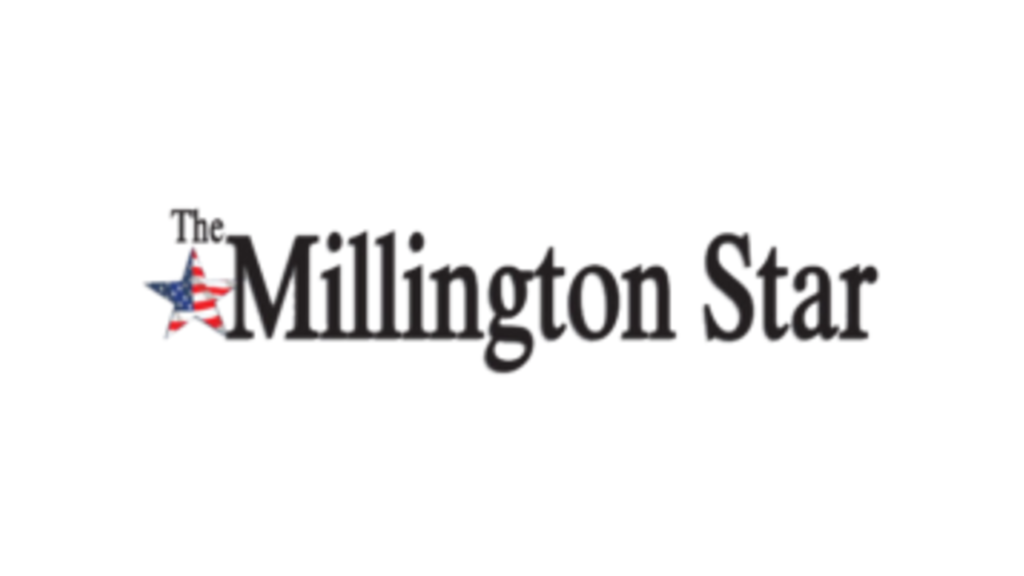By Thomas Sellers Jr.
MMEA President Lara Landry (left) chats with local teachers including Millington Elementary School third grade teacher Sandra Lewis and Shelby County teacher Corrine Landry.
Back in March, Tennessee Gov. Bill Lee presented to lawmakers he desire for $25 million for a school voucher program allowing thousands of students at low-performing schools to use state money for private education. Since the announcement, several groups across the state like the Millington Municipal Education Association have spoken out against the proposal. On April 22 in Millington’s Aycock Park, the MMEA held a rally Millington Municipal School Superintendent Bo Griffin, Millington School Board members Larry Jackson and Cody Childress in attendance. Griffin, along with former MMEA president Barbara Gray spoke in front of the crowd of teachers and students about the dangers of vouchers passing through the Tennessee House and Senate. Finally current MMEA president Lara Landry took to the floor to outline the concerns of the voucher program. “The purpose here today is to get the word out and to encourage everyone to contact their local representatives to vote ‘No’ on the vouchers,” Landry said. “The vouchers thing has been going on for years. (Tennessee Education Association) had been fighting hard against vouchers. We’ve been able to defeat them the last seven years in a row. This current one, the Governor is pushing hard. So we’re trying to push back.” The new “education savings account” program — a pilot that his staff said would expand over time — marked his most definitive commitment to the contentious effort, which has repeatedly stalled in the Republican-dominated Tennessee General Assembly. Under the plan, 5,000 students in low-performing districts would get access to money. Each student would get about $7,300. The program’s capacity would grow by 2,500 students per year if there is continued demand, and Lee indicated the funding pool would continue to grow in subsequent budget years. “Because they are taking public money and allowing them to use it for private schools,” Landry said. “In doing that, they are taking the funds away from public schools. It will increase class sizes in public schools. It will get rid of classes like art, music, computer technology and career-based things because the funding won’t be there. “They also have to remember, once they take that voucher there, they have to pay the balance of any tuition,” she continued. “Because 99 chances out of 100, that money is not going to be enough to cover full tuition. Then they have to remember their child is going to have to perform at a certain level. And it’s been seen in other areas once the kids get in there, they’re watching what the parents are doing too.” Lee administration officials said students in the Davidson, Hamilton, Knox, Madison and Shelby county districts would be eligible, along with students from the state-run Achievement School District. The Governor tried to ease concerns back in March saying his ESA plan will invest at least $25 million new dollars in public schools in the first year to fill the gap when a student transfers to another school. “If you take the seriousness of what this voucher does, it takes the funds that would be going to public schools in puts them to where parents in low-performing schools can take their kids to a private school,” Landry said. “The biggest problem we have with it is that private schools are not held to the same standard as public schools. They are not required to pass the same test that our kids are. They do not have to take in every child that come through their door. Once they are there, they don’t have to keep them. If a child comes through our doors and they live in our district, they are a part of our school.” The eligible school districts will get “improvement grant” funding under the plan, money that would mirror the funding participating students used elsewhere. Lee also asked for $12 million that public charter schools could use to buy new property and make upgrades, rounding out what he called a $37.4 million ask for “student choice” initiatives. “The people don’t get to vote on this,” Landry noted. “That’s why we’re so hot and heavy on going to the legistitors and the representatives. It’s in the House right now. It’s been going back and forth between the House and the Senate. They both have to agree on the same various of the Bill before it goes to the Governor for a signature. “They need to fully fund public schools,” she concluded. “If they want to hold us to a standard they need to hold all the other schools to the same standard. You can’t compare apples and oranges.”
Today, the House of Representatives narrowly approved Gov. Bill Lee’s controversial school voucher legislation.
It occurred after a 40-minute deadlock where the vote was held open at 49-49. The deadlock occurred in part due to the absence of Rep. Debra Moody, R-Covington.
The open vote followed a lengthy consideration of the bill that began just after 9:45 a.m., with a vote called after noon.
Rep. Jason Zachary, R-Knoxville, cast the tie-breaker, switching from an initial no vote on the measure to a later casting a vote in favor.




